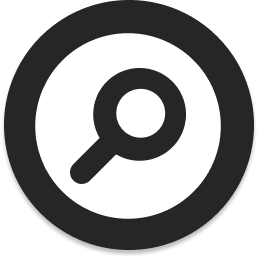Skip to content 




The Best SEO Tools for Developers

April 26, 2024
We know that, for us developers, SEO is far from being an easy thing. The issue is actually simple: SEO is not something we like (want) to do.
Thankfully, there is now some tools that make Search Engine Optimization way, way easier for us. There is even tools that are implemented only through code. Sounds interesting, right? Well, it's the topic of today's article.
Let's dig into SEO for developers!
Introduction
If you're completely new to SEO, maybe giving a quick definition can be useful. According to ChatGPT:
SEO (Search Engine Optimization) is the practice of improving the quality and quantity of website traffic by enhancing the visibility of a website or a web page to users of a web search engine.
Quite a good definition, in my opinion.
SEO is usually something developers don't do. Why? Because we don't really learn it, and because it (in our mind) implies a lot of marketing work - but it's actually not really the case.
Search Engine Optimization is also based on technical stuff. For example, Google bots pay a lot of attention to the speed of a website, the use of certain HTML attributes, etc. We'll talk about it later in the article.
Here, I want to list a few tools that will be useful for developers who want to improve their websites' SEO. Tools that don't imply starting a blog or working on keywords. Tools that imply technical stuff.
These tools are listed on this very same website's directory, Indie Dev Tools, in the SEO Category.
The 4 Best SEO Tools for Developers
Okay, it's now time to list 4 of the best tools for developers!
Google Lighthouse, to Make the Diagnosis of your Website

Google Lighthouse is, according to itself, an open-source, automated tool for improving the quality of web pages.
Basically, it's a product that allows you to test your web page and get metrics out of these tests. These metrics are: performance, accessibility, best practices and SEO. Each of them actually matters for your SEO.
Once the test has run, Lighthouse gives you a score out of 100 for every of these 4 metrics. The tool also gives you advices to improve the scores.
It might be the best tool to start your SEO journey, on the technical side. It's very easy to use, and gives interesting insights about your website status.
If you want to have more info about it, and learn how to use it, read the Google documentation.
Tip: run the tests in a private navigation tab, because some Chrome (or other web browser) extensions can slow down your website loading time!
SEO Programming, to learn Programmatic SEO

Programmatic SEO is an optimization technique that allows you to improve your search engine ranking with code, and only code.
This tool, SEO Programming, whose tagline is: 'Write Code, Not Campaigns: SEO for Developers Who Hate Marketing', is a guide to learn how to easily implement Programmatic SEO in your website, if it uses React, Vue or Angular.
Interesting thing: no need for SSR; the guide explains how to multiply your clicks by 2 or 3 in a few weeks with a simple use of your favorite front-end framework, your keyboard, and your fingers.
Meta Explorer, to Improve your Website Structure

You've tested and improved your website performance, and added code driven SEO to improve your search engine optimization? It's now time to test the pages live, one by one, and implement the last improvments you can still do.
For this, there is a nice tool: Meta Explorer.
Meta Explorer is a free Chrome extension that analyses the current open page in a click, to give you every SEO detail of it: meta tags (title, description, canonical, og, etc.), headers on the webpage, presence of images alt attribtutes, etc.
With these informations that Lighthouse wouldn't give you, you can improve a bit more the structure of your webpage, and therefore your website SEO.
Junia, the AI Content Generator

I think with the three previous tools, your code and website structure are optimized for Google, Bing, and the other search engines!
But there is something missing... Something we, developers, don't like to work on: the content of your website. Thankfully, we now don't have to write (or pay someone to) blog articles and website SEO-friendly content.
Some tools do it for us, like the last one that I'm going to talk about here. It is Junia, an AI-powered product that generates SEO-friendly content, text and images.
Thanks to AI generation content, Junia's promise is to boost your SEO quickly, without having to create yourself this content.
Be aware, though, search engines will probably soon be able to detact AI generated content better than they do now!
Conclusion
And... That's it for today!
Of course, SEO is not only technical stuff, far from it! But this article was focused on tools easy to use by developers. Now, if you want to learn more about SEO, Google is your friend!
Quick note: I could have mentionned here more famous tools, such as Google Search Console, Ahref, etc. But I wanted to talk about less famous, less obvious tools, with some developed by independent developers or small teams.
If you want to find more tools for developers, please check our directory, Indie Dev Tools!
You might also want to read: Programmatic SEO: Boost your ranking with a few lines of code
Written by Alexandre Grisey
